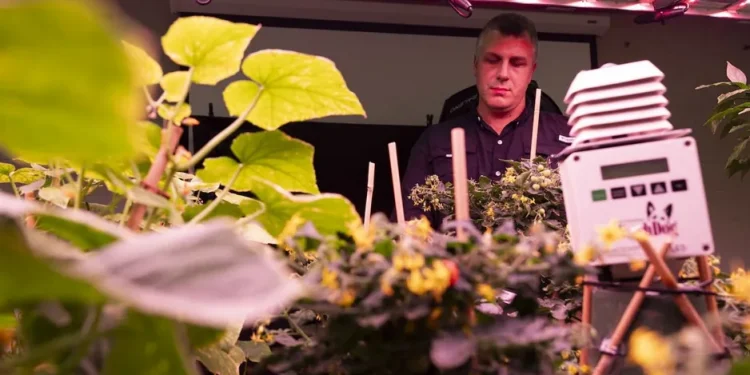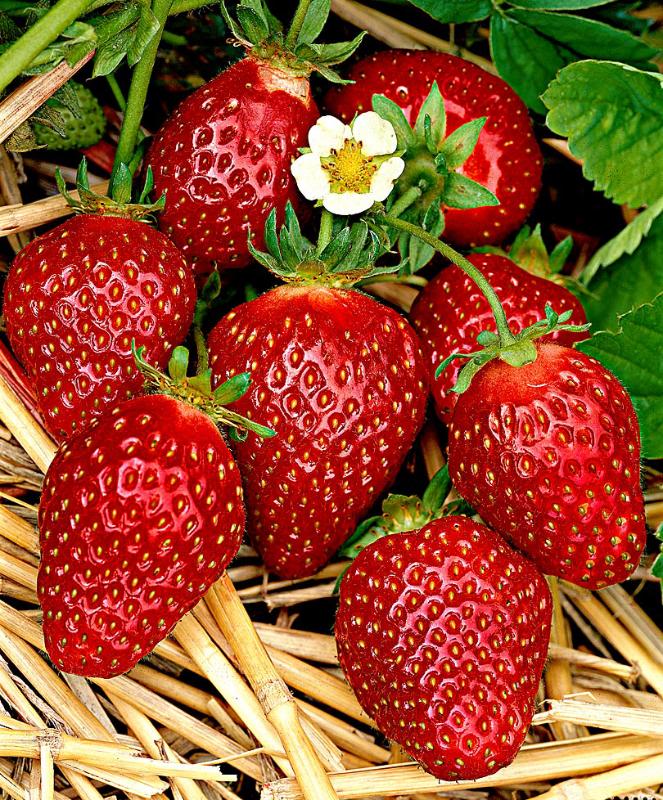The Arkansas Agricultural Experiment Station, the research arm of the University of Arkansas System Division of Agriculture, is spearheading a groundbreaking project to revolutionize blackberry cultivation. Ryan Dickson, an assistant professor of horticulture, has been leading research on indoor blackberry growing since 2018. Recently, Dickson secured a nearly $750,000 grant from the U.S. Department of Agriculture’s National Institute of Food and Agriculture to expand this work over the next four years.
This research comes at a time of growing consumer demand for fresh-market blackberries, as highlighted by the Packer’s Fresh Trends 2024 survey, which shows a steady increase in blackberry purchases. Dickson’s work is focused on developing soilless long-cane production techniques that promise to not only meet this rising demand but also address critical challenges faced by blackberry growers, such as declining yields due to soilborne pathogens and climate variability, and the increasing costs of production.
Tackling Industry Challenges with Innovation
Traditional blackberry farming is being tested by various factors, including disease and unpredictable weather patterns. While breeding for disease resistance is one approach, it is a time-consuming process and does not address all the challenges. Dickson’s research aims to develop a more immediate and comprehensive solution by moving blackberry production into controlled environments.
The core of Dickson’s research involves the soilless long-cane system, where blackberries are first grown outdoors in containers and pruned to create long canes. These canes are then brought indoors and exposed to a controlled environment that simulates winter conditions. This tricking of the plants allows for off-season fruit production, offering growers the potential to meet market demand year-round.
Research and Economic Impact
The project’s scope extends beyond technical research to include economic analysis. Dickson’s team will conduct breakeven and risk analyses for both long-cane and traditional field-based systems, identifying the key drivers of profitability. This aspect of the research is crucial for ensuring that the innovations developed are not only agronomically viable but also economically sustainable.
Additionally, the project is designed to be highly collaborative and integrative. Dickson is working with Amanda McWhirt, an extension fruit and vegetable horticulture specialist, to ensure that the research findings are quickly and effectively communicated to both small and large operations. This outreach effort is vital for ensuring that the benefits of the research are widely adopted, thereby supporting the long-term sustainability of blackberry farming.
Pioneering Soilless Systems
A significant aspect of the research is the exploration of soilless systems, which have the potential to reduce disease-related losses and increase yields. The experiments will take place in high tunnels at the Milo J. Shult Agricultural Research and Extension Center in Fayetteville and the Fruit Research Station in Clarksville. These tunnels are equipped with advanced irrigation and fertigation systems, and the plants will be grown in coconut coir substrate.
This approach represents a significant shift from traditional field-based blackberry farming and could set a new standard for high-value crop production in controlled environments. The anticipated benefits—higher yields, improved fruit quality, and the ability to produce fruit out of season—are expected to strengthen local and regional economies.
Moving Forward
The successful implementation of this project could have far-reaching implications for the agricultural industry, particularly for those interested in sustainable and innovative farming practices. By addressing both the technical and economic challenges of blackberry farming, this research holds the potential to transform the industry and provide a model for the cultivation of other high-value crops.
As this project progresses, it will be closely watched by investors and entrepreneurs seeking to capitalize on new opportunities in the agricultural sector, as well as by those committed to advancing sustainable farming practices.











